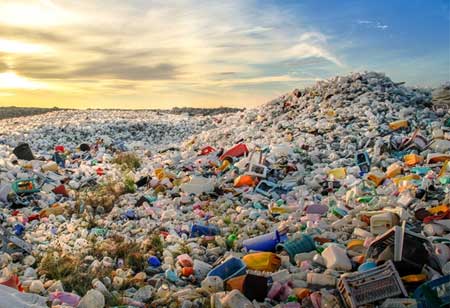THANK YOU FOR SUBSCRIBING
Scientists Claim to Produce Electricity with Plastic Waste
Almost every country is struggling to find ways to deal with the enormous plastic waste generated every year. Chemists at Nanyang Technology University, Singapore (NTU Singapore) discovered a method that could turn plastic waste into helpful c

By
Apac CIOOutlook | Tuesday, December 24, 2019
Stay ahead of the industry with exclusive feature stories on the top companies, expert insights and the latest news delivered straight to your inbox. Subscribe today.
Almost every country is struggling to find ways to deal with the enormous plastic waste generated every year. Chemists at Nanyang Technology University, Singapore (NTU Singapore) discovered a method that could turn plastic waste into helpful chemicals by using sunlight
Fremont, CA: Plastic wastes have been one of the significant sources of pollution these days. Almost every country is struggling to find ways to deal with the enormous plastic waste generated every year. While there was an alarming rate of pollution, the technology of using plastic waste to make roads emerged as a silver lining. Adding more relief to the pollution, chemists at Nanyang Technology University, Singapore (NTU Singapore) discovered a method that could turn plastic waste into helpful chemicals by using sunlight.
Lab experiments reported that the solution formed by plastic, mixed with its catalyst in a solvent, can harness light energy and convert the dissolved plastics into formic acid, which in turn could be used in fuel cells to produce electricity.
The catalyst was made from the affordable, biocompatible metal vanadium, commonly used in steel alloys for vehicles and aluminium alloys for aircraft. NTU Assistant Professor Soo Han Sen led the team which made this catalyst at the School of Physical and Mathematical Sciences.
Check Out: Top Plastic Technology Consulting Companies
A non-biodegradable consumer plastic like polyethylene was used to dissolve the vanadium-based catalyst and exposed to artificial sunlight. This breaks down the carbon-carbon bonds within the plastic in six days. The polyethylene is thus turned into formic acid, which is a naturally occurring preservative and antibacterial agent. This acid can be used for energy generation by power plants and in hydrogen fuel cell vehicles.
Today in Singapore, most plastic wastes are burnt which produce a good chunk of greenhouse gases such as carbon dioxide, and the remaining mass-burn ash – is transported to the Semakau landfill, which is estimated to run out of space by 2035.
NTU Smart Campus developed this innovative zero-waste solution which is an environmentally friendly catalyst to turn waste into resources, to make a green vision for a sustainable future.
See Also :-Top Marine Tech Solution Companies





